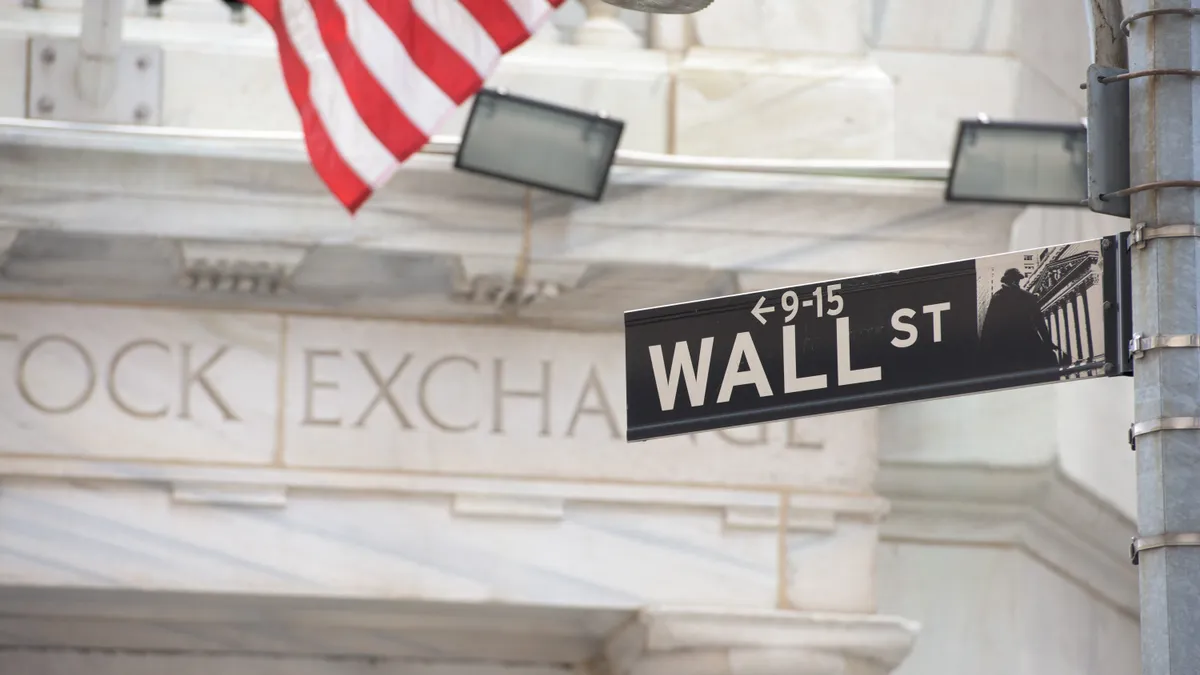Dive Brief:
-
The economy is on the verge of “SPAC 2.0,” Amy Butte, principal at blank-check company Iron Spark and former CFO of the New York Stock Exchange, told CNBC Monday. “SPACs are starting to disintermediate late-stage venture capital.”
-
Butte, who has led finance at Credit Suisse and BNP Paribas, defined SPAC 2.0 as having “more operators” than the current iteration of SPACs, in which companies file an IPO by merging with a special purpose acquisition company like Iron Spark. SPAC 2.0 will also have “more founder and company-friendly economics” and “different players in the marketplace,” Butte said.
-
Going public through a SPAC merger has been an increasingly popular decision over the past year, as some high-growth companies consider it a more efficient path to the public marketplace. Under a SPAC transaction, a private company goes public by merging with a blank-check company that's already publicly traded. The blank-check company has up to two years to find a merger partner and deploy its capital.
Dive Insight:
In 2020, 219 SPACs raised $73 billion in proceeds, Business Insider reported. That’s a 462% year-over-year jump in proceeds raised using the process, outpacing traditional IPOs, which raised $67 billion year-to-date. Companies including Virgin Galactic, AppHarvest and DraftKings have chosen the SPAC approach.
Despite their risks, which can include a compressed period in which private companies have to prepare for public reporting and regulatory oversight, SPACs are here to stay, Butte predicts, especially for start-ups who traditionally rely on several rounds of venture capital raises prior to filing an S-1.
“If you go back to the early 2000s, venture rounds of D, E and F, were a very low percentage of proceeds raised for companies,” Butte said. “But [around] 2014 and 2015 was an inflection point, and that percentage hit closer to 40%. That's come down by about half in 2020.”
Based on this, Butte said, SPACs have begun disintermediating late-stage venture capital funders in the process of going public. “They’re disintermediating a portion of the traditional IPO, too,” she said. “That's okay, because late-stage VC is actually really expensive for early stage growth companies.”
But, given SEC disclosure requirements that are likely to follow the SPAC boom, blank-check companies may find the deal significantly less lucrative going forward, CNBC said. But Butte, as a blank-check company principal, still believes participating in SPACs will be worth their time.
“There are a lot of people with a lot of value to add,” she said. “Look at former operators who want to find a way to either help a company, or be part of a new company. There are growth companies who still need to find new forms of capital; once again, late-stage VC is really expensive.”
The high cost of late-stage venture funding rounds makes the best case for SPACs, Butte said. “We've seen in hedge funds, and in other parts of the industry, that the economics become more competitive, and the people themselves either have to become better, or need to exit,” she said.














